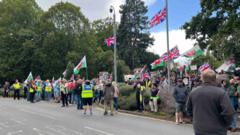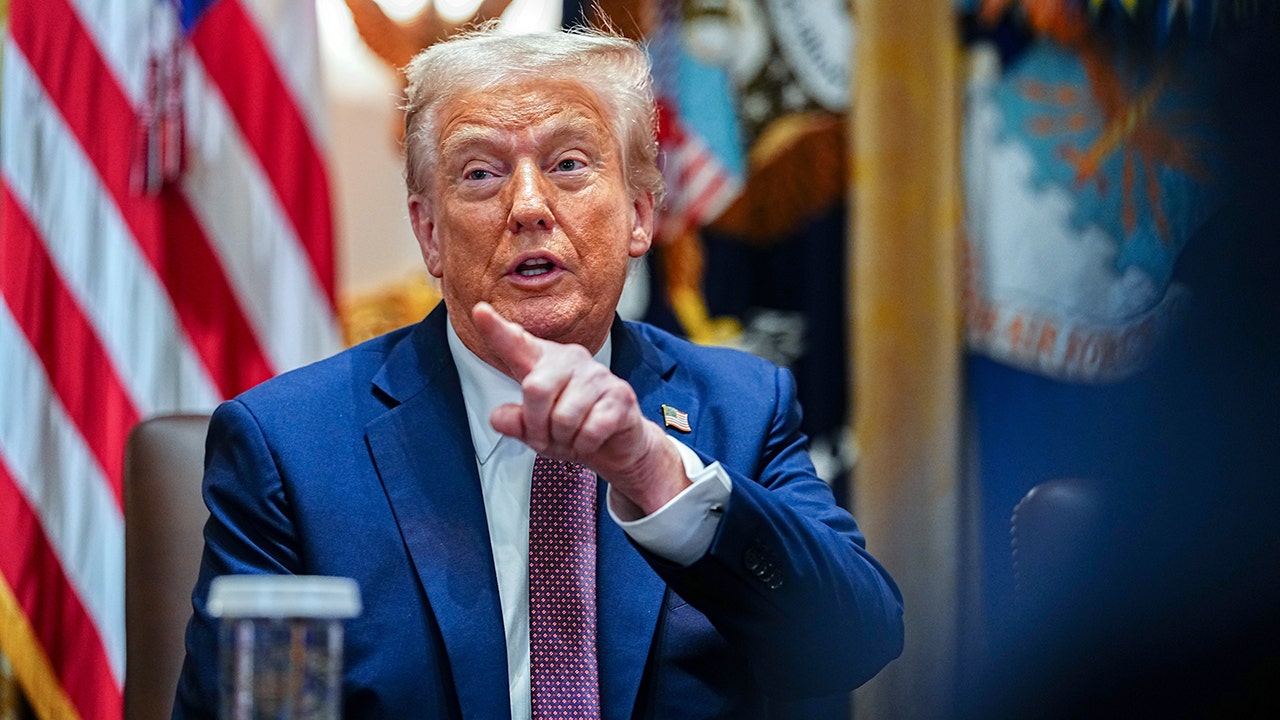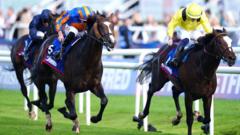What Happened During Two Protests in Newtown?

Published: 2025-09-13 14:05:30 | Category: wales
On Saturday, approximately 600 people participated in two separate protests in Newtown, Powys, including a march against the government's immigration policies, branded as the 'Stop the Boats' demonstration. Organised by a local committee, the event attracted around 400 attendees, who voiced their discontent with Labour Party leadership and government decisions.
Last updated: 04 October 2023 (BST)
Overview of the Protests
The protests in Newtown were significant in size and sentiment, reflecting growing divisions within the community regarding immigration policy. The 'Stop the Boats' march was particularly notable, as it highlighted the frustrations of those who feel that current government measures are inadequate to address their concerns.
Key Takeaways
- Approximately 600 people attended protests in Newtown, Powys.
- The 'Stop the Boats' march featured around 400 participants.
- Protesters expressed disapproval of Labour leadership and national policies.
- A counter-protest of about 200 individuals supported refugees and migrants.
- Local politicians addressed both groups, indicating political engagement on the issue.
- The protests coincided with a moment of silence for a recently deceased activist.
Details of the 'Stop the Boats' March
The march was organised by a local committee and aimed to highlight opposition to the government's immigration policies, particularly those perceived as targeting asylum seekers and migrants. Participants chanted slogans and carried banners, expressing their grievances against Prime Minister Keir Starmer and the Labour government.
Political Context
As the UK grapples with the complexities of immigration, local sentiments often reflect broader national debates. The Labour Party's stance on immigration, particularly under Starmer's leadership, has been scrutinised by various factions within the party and the public. Critics argue that the government’s approach has failed to adequately address the humanitarian aspects of the crisis.
Key Speakers and Messages
Among the speakers was Karl Lewis, a County Councillor from Powys who recently left the Conservative Party to join Reform UK. His speech included a moment of silence to honour Charlie Kirk, a right-wing activist tragically killed in a shooting incident at a university in Utah earlier in the week. This gesture connected local concerns with broader national narratives about political violence and activism.
The Counter-Protest
In close proximity to the 'Stop the Boats' march, a counter-protest took place, drawing around 200 attendees. This group advocated for the rights of refugees and migrants, showcasing a contrasting perspective within the community. Participants held signs with messages of support and solidarity, reflecting a commitment to humanitarian principles.
Involvement of Local Politicians
Local Members of Parliament (MPs) spoke at the counter-protest, including Steve Witherden from Labour and Liz Saville Roberts from Plaid Cymru. Their involvement underscores the importance of immigration issues in local and national politics, as they aim to represent their constituents' diverse views on these pressing matters.
The Role of Law Enforcement
The Dyfed-Powys Police were present at both events to monitor the situation and ensure public safety. Authorities were requested to provide estimates of attendance and any incidents of arrests, highlighting the law enforcement's role in managing public demonstrations. The peaceful nature of both protests was noted, with no significant disturbances reported.
Conclusion
The protests in Newtown reflect the ongoing debates surrounding immigration policy in the UK, illustrating the deep divides that exist within communities. As the government faces increasing pressure from various factions, both supporters and opponents of current policies are making their voices heard. The involvement of local politicians indicates that these discussions are likely to continue as broader national policies evolve.
With immigration remaining a contentious issue, the outcomes of such protests may influence future local and national political landscapes. How will communities continue to engage with these pressing issues, and what impact will that have on policy-making in the coming months? #ImmigrationDebate #ProtestsUK #CommunityVoices
FAQs
What was the purpose of the 'Stop the Boats' protest?
The 'Stop the Boats' protest aimed to express opposition to government immigration policies, particularly those affecting asylum seekers and migrants, reflecting frustrations with the Labour Party’s stance.
How many people attended the protests in Newtown?
Approximately 600 people attended the protests in Newtown, with around 400 participating in the 'Stop the Boats' march and about 200 in the counter-protest.
Who were the key speakers at the protests?
Key speakers included Karl Lewis, a local councillor, and various MPs such as Steve Witherden and Liz Saville Roberts, who addressed the concerns of attendees and highlighted differing views on immigration.
Was there any violence during the protests?
Both protests were reported to be peaceful, with no significant disturbances or arrests noted by local law enforcement during the events.
How does the local community feel about immigration issues?
The local community in Newtown appears divided on immigration issues, with some advocating for stricter policies while others support refugee and migrant rights, as evidenced by the opposing protests.



